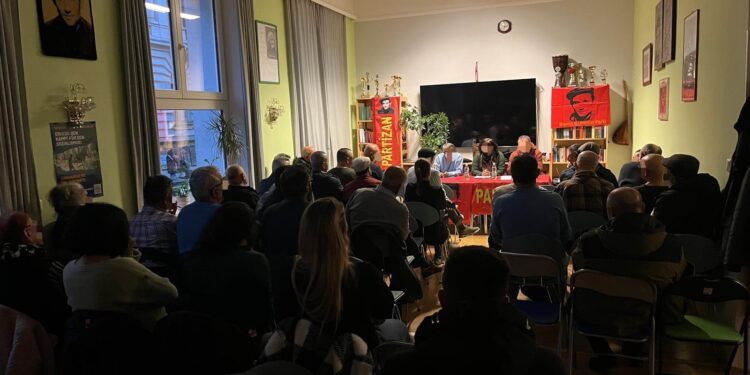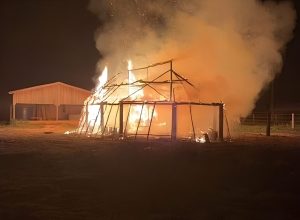
Joint Panel Organized by Partizan and Class Theory in Austria
We hereby share an unofficial translation of a report from Avrupa Haber Merkezi (AHM) on a recent joint panel with Partizan and Class Theory on “the peace process and the national question.”
In Vienna, Austria, on October 18, and in Wörgl on October 19, Partizan and Class Theory held two joint panels on current political developments in Turkey, the peace process, and national issues.
The panels began with a moment of silence in memory of those who died in the struggle for revolution, socialism, and communism. In the opening speech, it was stated that “we are going through a period in which imperialist aggression knows no bounds and the darkest fascism is being imposed on the peoples of the world through local collaborators, and that we are here to evaluate the process specifically in Turkey and to discuss our revolutionary democratic duties and responsibilities in order to move forward.”
The first speech began with the representative of Partizan; the representative of Partizan stated: “Competition among imperialist powers worldwide is becoming increasingly fierce. The deepening economic crisis is making imperialists more aggressive, prompting them to create new market areas and intensify exploitation. This situation is further deepening conflict and crisis worldwide.”

“In this process, countries such as Turkey, which serve as the forward outposts of imperialism, are made more vulnerable to imperialist interventions and are forced to play the subservient role assigned to them in the redesign of the Middle East.”
It was emphasized that initiatives referred to as the “peace process” cannot be considered independently of imperialist interventions, and that consistency in the anti-imperialist struggle is of vital importance. It was stated that believing the state is undergoing democratization amounts to ignoring its fascist, genocidal, and occupying character, which it has maintained in Kurdistan for years. It was stressed that genuine democratization is only possible through the overthrow of this exploitative State.

The second speech continued with a representative of Class Theory, who touched upon the economic and political foundations of the clique conflict among the ruling classes in Turkey. He said that the tension between the AKP-MHP ruling bloc and the capital circles represented by the CHP and other bourgeois political structures had become more pronounced in recent times.
The representative commented on what political line the revolutionary movement could follow in light of this situation. He also stated that Abdullah Öcalan’s “democratic politics” approach meant moving away from armed struggle, indicating that this orientation pointed to a line within the system.
Following the speakers, questions from the participants were answered, and the panels, which featured productive discussions, were concluded.

